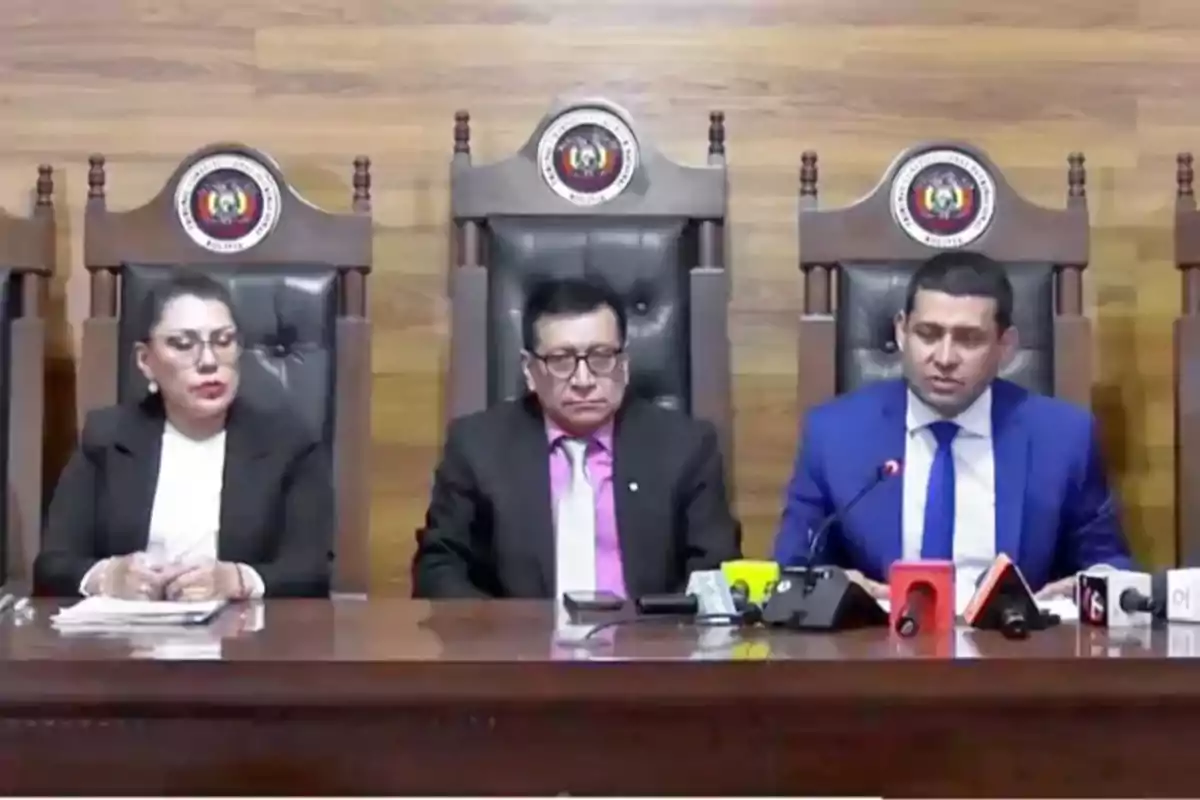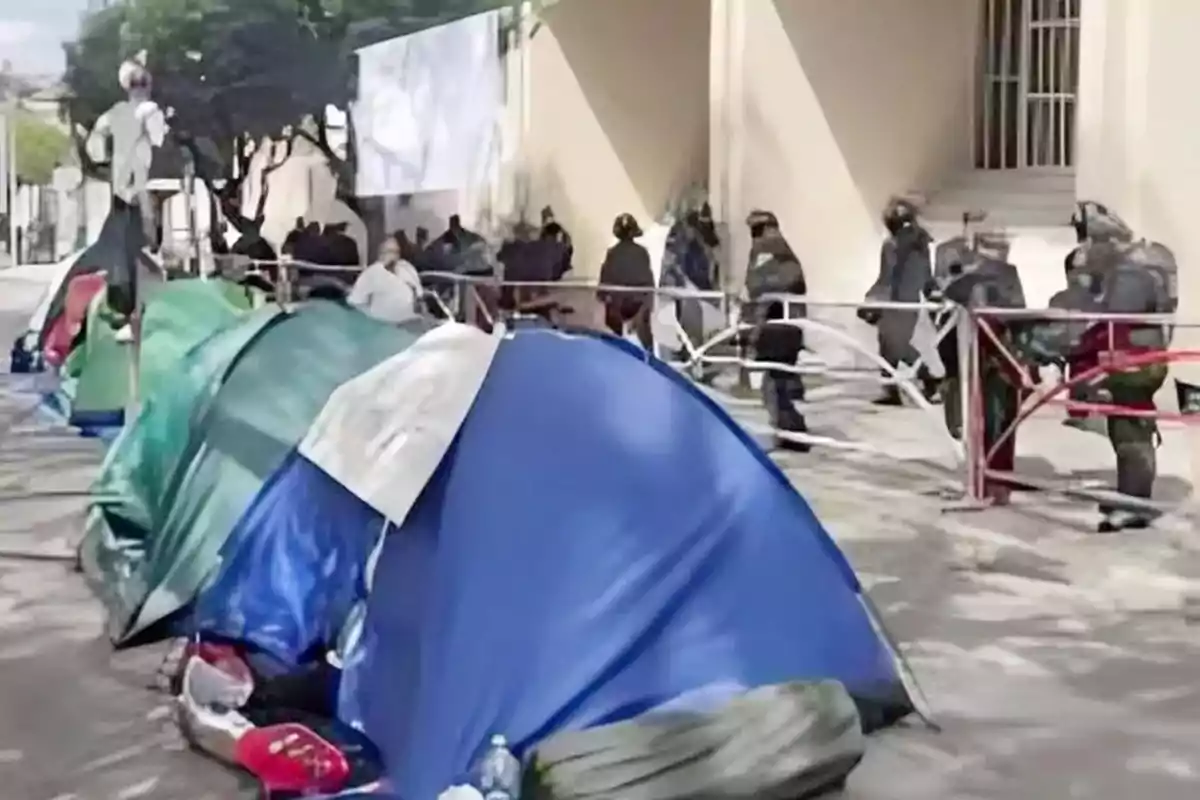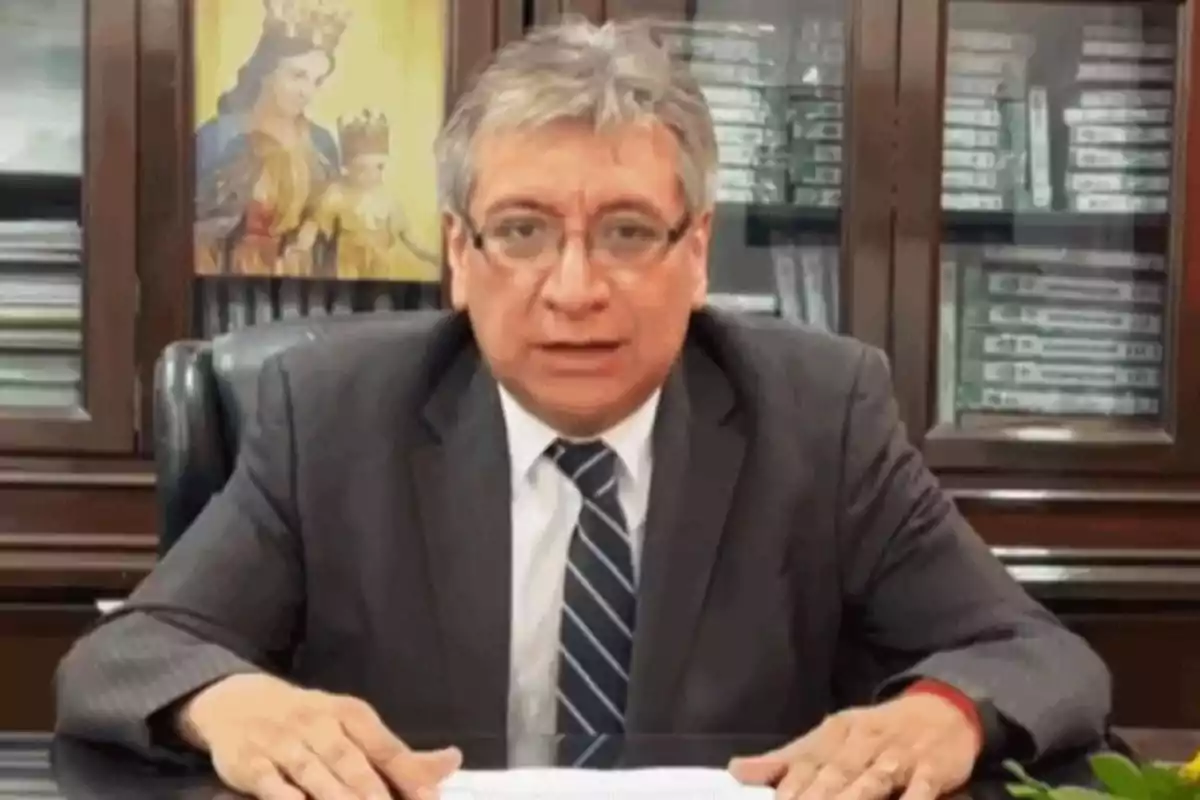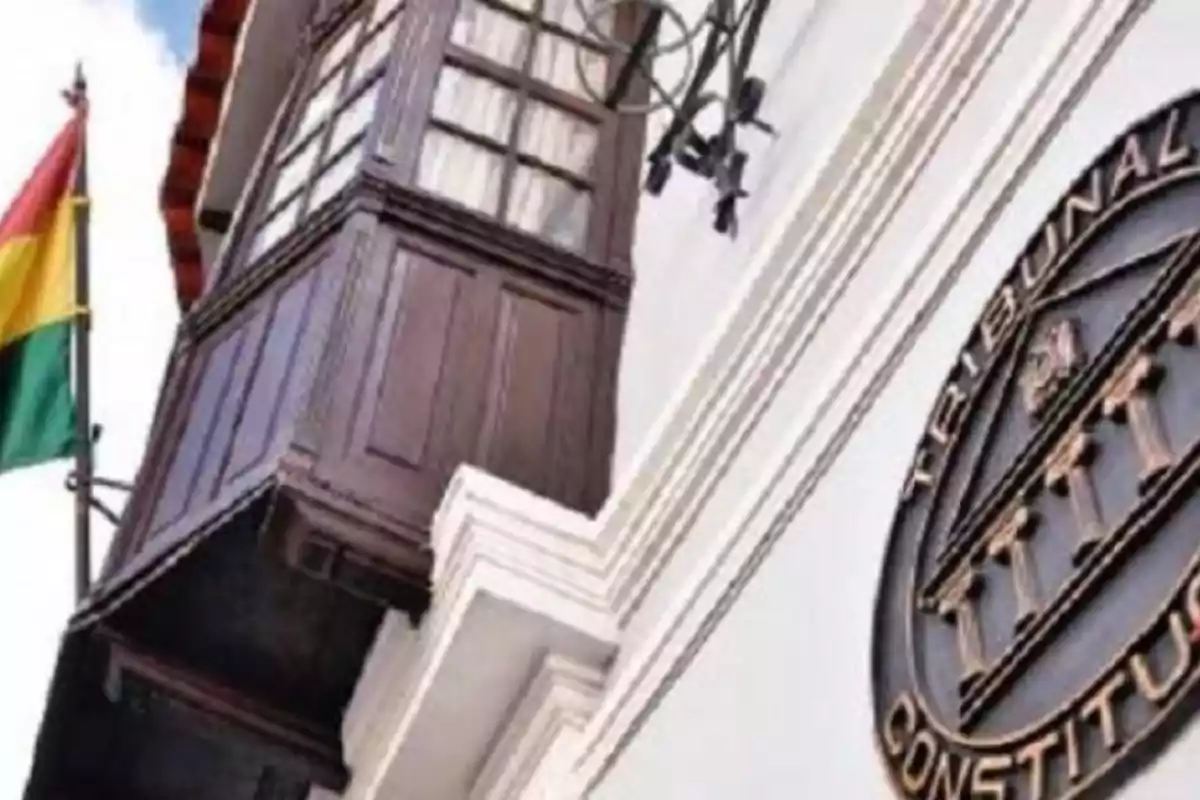
Elections: The TCP reinstated Andrónico Rodríguez's acronym and left Evo Morales out
New TCP rulings restored the legal status of Rodríguez's MTS and annulled that of Morales's PAN-BOL
The Plurinational Constitutional Court (TCP) issued three key resolutions for the electoral process this Thursday. One of them confirms the suspension of the legal status of the PAN-BOL party, with which the pedophile Evo Morales intended to participate as a candidate.
With this decision, the path for the former dictator to participate in the August elections is officially closed. At the same time, the TCP paved the way for the candidacy of Andrónico Rodríguez. The legal status of Movimiento Tercer Sistema (MTS), a political ally of the president of the Senate, was restored.
Iván Espada, dean of the TCP, explained that the resolutions were issued to guarantee the holding of elections within the legal framework. He emphasized that a citizen complaint was rejected that sought to suspend the decisions made at the MTS congress on January 30.
That request sought to disqualify the participation of that political force in the August elections. The TCP decided to uphold the determinations made in that internal instance. Thus, MTS will be able to present candidates.
A second resolution addressed a precautionary measure from the president of the Supreme Electoral Tribunal (TSE), Óscar Hassenteufel. That action sought to overturn a court order issued in Beni that prohibited the registration of MTS candidates.
The TCP granted the measure and ordered the TSE to allow MTS's participation. This guarantees the registration of candidates from the bloc supporting Rodríguez. The ruling solves the legal obstacles faced by that group.
The third resolution directly affects PAN-BOL, the party that the Evista bloc sought to use to enable Morales's candidacy. The TCP confirmed the cancellation of its legal status, in line with what was already decided by the TSE.
This way, the decision to prevent Morales from running through that route is shielded. The resolution also aims to stop attempts at political judicialization of the process. Espada called on political actors to act responsibly.
The TCP reminded that the electoral process must be maintained under normal conditions. Dean Espada stressed that the calendar can't be altered nor can justice be manipulated for partisan purposes. He called on citizens to safeguard peace and democratic institutionality.
He also indicated that the Court's objective is to protect the right to vote of all Bolivians. He also emphasized the independence of the constitutional body.
Fear among TCP members

The resolutions were issued in a context of growing political tension. For more than a week, sectors aligned with Morales have maintained a vigil at the doors of the TCP. There have even been violent attacks against the court's headquarters in Sucre.
On Wednesday night, individuals with explosives attempted to attack the building by throwing devices at the windows. The police arrested two suspects who were carrying explosive material.
According to the TCP's statement, the detainees are allegedly linked to the vigil promoted by Evista groups. The institution reported that they were hired to carry out an attack.
In addition, the magistrates demanded that the Public Prosecutor's Office and the police guarantee their security. They stated that no act of intimidation will prevent them from continuing to fulfill their duties. They condemned the use of violence for political purposes.
This is not the only incident recorded in recent days. Last week, an explosive device detonated near the home of an electoral official in Cochabamba. The police linked that event to the crime of terrorism.
Authorities are also investigating whether there are links to previous threats against officials in La Paz. The Deputy Minister of Internal Affairs, Jhonny Aguilera, reported that these actions already constitute crimes. He assured that the intellectual authors are being sought.
The protests in La Paz and other cities have caused concern in the government. Since Monday, the Evistas have intensified their pressure measures to achieve Morales's qualification. There have been demonstrations and clashes with the police.
So far, there are at least twenty people arrested and three officers injured. The executive branch considers that these acts seek to impose a candidacy by force.
Rejection of the former dictator's ambitions

The president of the TCP, Gonzalo Hurtado, spoke on Monday about the demonstrations. He confirmed that no one can remain in power indefinitely, in direct reference to Morales.
He recalled that constitutional ruling 1010/2023 and its complementary regulation clearly establish this. According to Hurtado, there is no legal recourse that can overturn that decision. He ruled out any possibility of reconsideration.
In his statement, Hurtado assured that the TCP acts under principles of legality and respect for the Constitution. He clarified that the former president can't run due to the current restrictions.
This position is consistent with the line maintained by the court since January of this year. Morales's qualification has been rejected in different judicial instances. The most recent decisions reinforce that criterion.
Judicialization of the elections

The TCP also called on political actors to stop judicializing the electoral process. It argued that constantly resorting to constitutional remedies generates uncertainty. It also weakens the country's democratic institutions.
The court reaffirmed its commitment to electoral transparency. It indicated that it will continue issuing rulings to safeguard essential rights.
However, the TCP's ruling also rekindles questions about its role as an impartial arbiter in the political arena.
Various sectors warn that its decisions, although cloaked in legality, align with current interests and reflect a worrying loss of institutional autonomy. In addition, the lack of transparency in some procedures strengthens the perception that its constitutional mission has been distorted.
More posts: